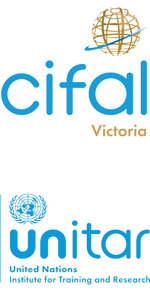What are the four drivers of this certificate’s approach?
Transformative
Create systemic change across sectors
Collaborative
Build consensus across communities—responsive to Indigenous priorities
Multi-dimensional
Integrate scientific, technical, legal, economic, cultural and political contexts
Future-focused solutions
Address intergenerational responsibility with practical outcomes
 How this program will prepare you:
How this program will prepare you:
- Understand strategic climate action planning
- Gain cross-sector collaboration skills
- Integrate science with policy and implementation
- Increase Indigenous partnership capacity
- Critically assess climate strategies at multiple scales
 How you'll feel more equipped:
How you'll feel more equipped:
- Become empowered to lead transformative change
- Get connected across diverse communities and perspectives
- Be future-ready for climate leadership roles
- Gain confidence in complex stakeholder negotiations
- Stay purpose-driven with clear impact pathways












